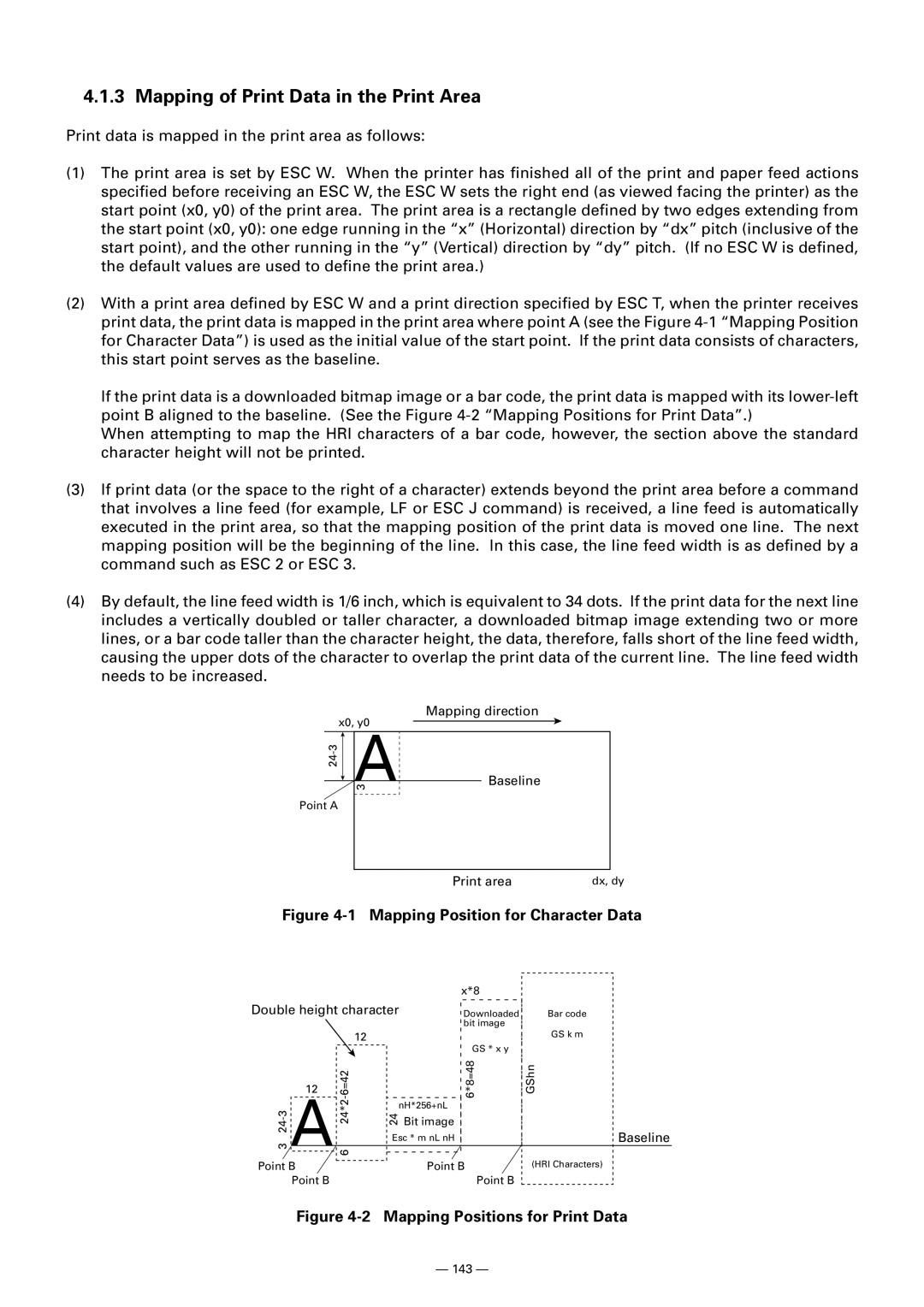
4.1.3 Mapping of Print Data in the Print Area
Print data is mapped in the print area as follows:
(1)The print area is set by ESC W. When the printer has finished all of the print and paper feed actions specified before receiving an ESC W, the ESC W sets the right end (as viewed facing the printer) as the start point (x0, y0) of the print area. The print area is a rectangle defined by two edges extending from the start point (x0, y0): one edge running in the “x” (Horizontal) direction by “dx” pitch (inclusive of the start point), and the other running in the “y” (Vertical) direction by “dy” pitch. (If no ESC W is defined, the default values are used to define the print area.)
(2)With a print area defined by ESC W and a print direction specified by ESC T, when the printer receives print data, the print data is mapped in the print area where point A (see the Figure
If the print data is a downloaded bitmap image or a bar code, the print data is mapped with its
When attempting to map the HRI characters of a bar code, however, the section above the standard character height will not be printed.
(3)If print data (or the space to the right of a character) extends beyond the print area before a command that involves a line feed (for example, LF or ESC J command) is received, a line feed is automatically executed in the print area, so that the mapping position of the print data is moved one line. The next mapping position will be the beginning of the line. In this case, the line feed width is as defined by a command such as ESC 2 or ESC 3.
(4)By default, the line feed width is 1/6 inch, which is equivalent to 34 dots. If the print data for the next line includes a vertically doubled or taller character, a downloaded bitmap image extending two or more lines, or a bar code taller than the character height, the data, therefore, falls short of the line feed width, causing the upper dots of the character to overlap the print data of the current line. The line feed width needs to be increased.
| x0, y0 |
A3 |
Point A
Mapping direction
Baseline
Print area | dx, dy |
Figure 4-1 Mapping Position for Character Data
|
| x*8 |
|
Double height character | Downloaded | Bar code | |
|
| bit image |
|
| 12 | GS * x y | GS k m |
|
|
| |
12 |
|
|
|
nH*256+nL |
| ||
24 | Bit image | Baseline | |
Esc * m nL nH | |||
66=4224*2- | 6*8=48 | GShn | |
Point B |
| Point B | (HRI Characters) |
Point B |
| Point B |
|
Figure 4-2 Mapping Positions for Print Data
— 143 —
